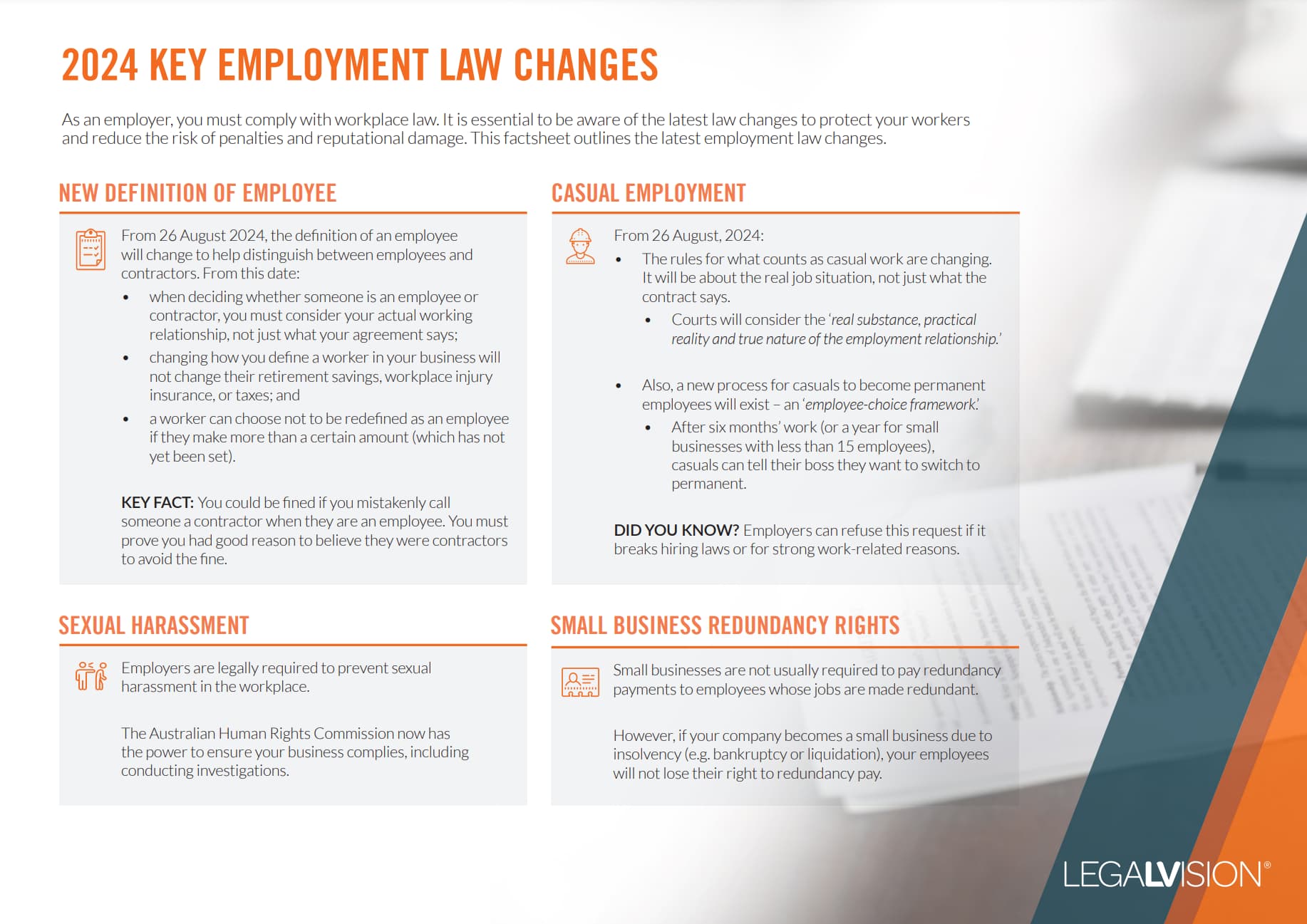A union can be involved on multiple levels to help negotiate enterprise bargaining agreements (EBAs). In most cases, the role of the union will be based on the employees and their decision to appoint an individual or organisation who they would like to represent them in the bargaining process. Additionally, the Fair Work Commission (FWC) requires that employees are individually notified to choose their bargaining representative. This article outlines situations where unions may negotiate EBAs on behalf of your employees.
Greenfields Agreements
Enterprise bargaining is the process of negotiation, generally between you, your employees and their bargaining representatives with the goal of making an EBA. One form of agreement is a greenfields agreement.
In a greenfields agreement, you, as an employer, negotiate an EBA directly with one or more employee organisations, such as a union.
In order for you to engage in negotiations with unions, your employees must have chosen them as their bargaining representatives. This is because, although they may not be involved in negotiating, your employees will inevitably be parties in the agreement.
Bargaining Representative
Apart from greenfields agreements, unions are not normally a party to an EBA. They can, however, be appointed as a bargaining representative. This occurs if a union member whose employment arrangement will be affected by an EBA chooses the union as their bargaining representative. Generally, if an employee is a union member, they are likely to choose that union as their default bargaining representative.

As an employer, it is essential to understand what employment laws have changed and their implications for your business — particularly the changes to the Fair Work Act 2009 through the new Closing the Loopholes legislation.
Union Bargaining
As an employer, you cannot choose the unions with which you bargain, meaning that all unions need to be considered throughout the bargaining process. If you fail to consider a particular union’s bargaining stance, you may be required to follow bargaining orders from the FWC. Generally, you may have to pay compensation to your employees if the FWC makes a bargaining order.
Low-Paid Workers
When it comes to businesses that have low paid workers, a union may request that they receive a low-paid authorisation. The FWC will decide whether or not to grant this. Additionally, the union will only be approved as a bargaining representative after the consideration of a number of factors, including whether the:
- low-paid authorisation is in the public interest;
- employees and employers face difficulties in the bargaining process; and
- bargaining position of both parties is significantly unequal.
If the FWC grants the union with a low-paid authorisation, they can join the bargaining process on behalf of their members.
Bargaining Disputes
If a bargaining dispute arises, a union that has been chosen by your employees can may get invovled. Unions can initiate the process for the FWC to order a bargaining order.
Additionally, all EBAs must be approved by the FWC.
Key Takeaways
There are various ways in which the enterprise bargaining process can have the involvement of a trade union. Like most bargaining representatives, unions need to be able to address the concerns of the members they are representing. Unions may be part of the negotiation process for greenfields agreements or other agreements if they are bargaining representatives. A union may also assist in bringing a bargaining order against you.
If you need help negotiating an EBA, our experienced employment lawyers can assist as part of our LegalVision membership. For a low monthly fee, you will have unlimited access to lawyers to answer your questions and draft and review your documents. Call us today on 1300 544 755 or visit our membership page.
We appreciate your feedback – your submission has been successfully received.












